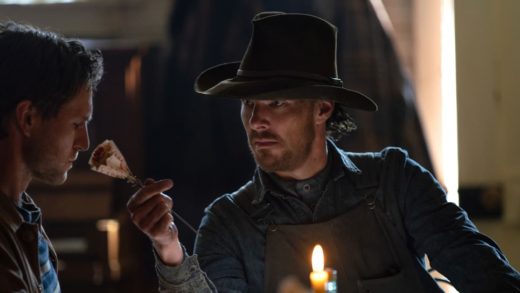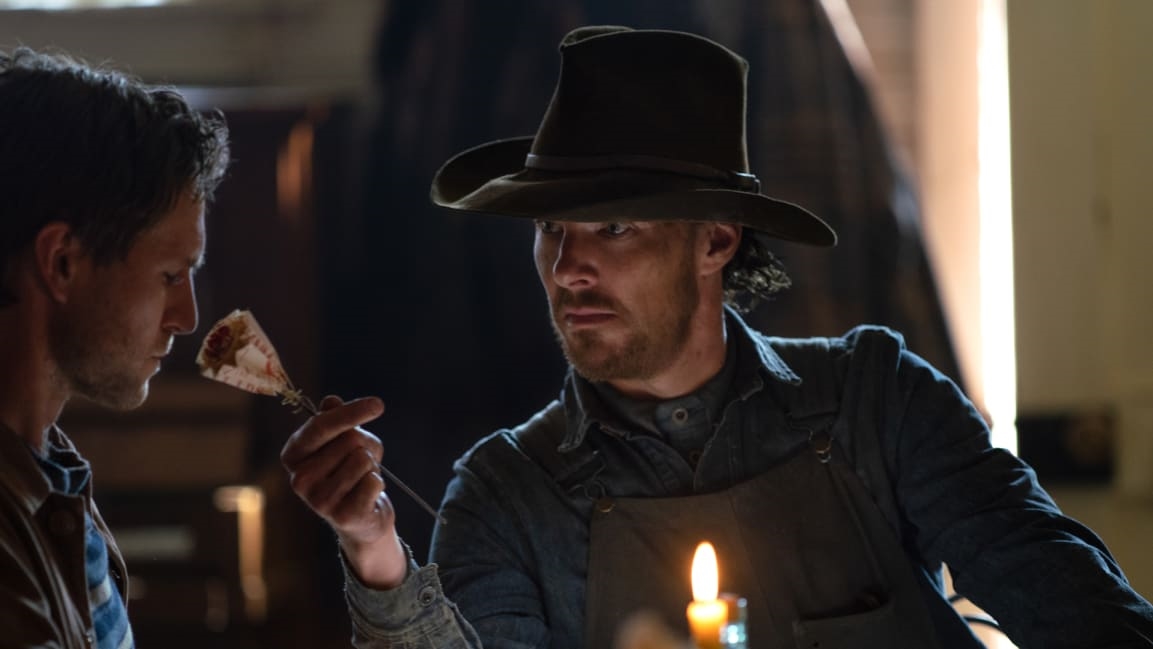Rooting out toxic masculinity in the workplace, one cowboy at a time
I couldn’t sleep after watching Jane Campion‘s Golden Globe winning film, The Power of the Dog, an emotionally dense Western starring Benedict Cumberbatch as a 1920s rancher in rural Montana. Notwithstanding the fact that my father’s family is from Montana, and that his father lost his thumb breaking a stallion, it’s the film’s sickening, real-life portrayal of toxic masculinity that really hit close to home.
The film serves as a stark reminder of how little has changed over the past century, and how much work is left to be done by leaders in every sector of life. Perhaps most disturbing is how accurately the film depicts masculinity contest culture—a dog-eat-dog worldview which sanctifies stereotypically masculine traits such as “emotional toughness, physical stamina, and ruthlessness”—traits which continue to pervade work culture in the U.S.
As a result of the #MeToo movement, the business world has undoubtedly become less accepting and more critical of toxic masculinity, but only insofar as those behaviors veer into illegality (e.g., sexual harassment and assault). Campion’s film is an opportunity to reignite a public conversation about the culture that allowed sexual predation and harassment to go unchecked for so long. Most important, it provides an opportunity to discuss solutions for eradicating masculinity contest culture from the workplace. And it starts by flexing an unlikely muscle–one’s vulnerability.
Cumberbatch’s cruelty
In the film, Cumberbatch plays Phil, a cowboy and ranch owner whose A+ performance of hyper-masculine norms masks a deeply hidden vulnerability. More than just a master of the cowboy arts (i.e., horseback riding, calf castration, lassoing, etc.), Phil’s every action is predicated on the tenets of masculinity contest culture. He viciously torments his sister-in-law, played by Kirsten Dunst, and her son (Phil’s nephew), Peter, played by Kodi Smit-McPhee, who recently won a Golden Globe for his performance. Phil’s emotionally violent attacks on Peter’s “effeminate” air become the film’s central tension as their relationship unfolds into something more complex.
Peter’s bullying experience brought back memories of my own adolescence. As a sensitive and precocious 5-foot-tall bookworm with dreams of becoming a civil rights lawyer, I lacked the masculine trappings of my fighter pilot father who was killed in action in Vietnam or my taller, athletic brothers; and, I got bullied for it. Although I grew five inches in college and now stand a whopping 5-foot-5, 92% of all American men are still taller than me. As a result, my physical, emotional, and intellectual strength is often underestimated. That being said, I am, according to The Atlantic, part of an elite crew of less than 8% of men who confidently married a taller woman!
When I achieved my lifelong dream of becoming a lawyer, I wrongly assumed that I’d find solace in a community of peers who were in it for the right reasons. I’m sure you know where this is going. As fate would have it, I was assigned to the firm’s three most notoriously cantankerous partners, one of whom was so difficult that he burned through three associates in less than a year. Unbeknownst to him, I’d had practice fending off bullies all my life. Aside from being my boss, he was no different than the others.
I decided I would rather lose than win with the bullies at the firm, so I quit law after just five years to build my own business. Nearly three decades later, I’m sorry to say that masculinity contest culture is still the accepted norm, both in law and most other industries. I’m forced to combat it regularly as a coach and fractional executive.
When an organization adopts and relies on masculinity contest culture as a scare tactic for productivity, dysfunction always ensues. Toxicity of this nature is often cloaked by false, shame-inducing monikers like “meritocracy,” which implies that the means justify the ends, no matter their virulent nature or harmful consequences. This behavior may yield high returns in the short-term, but only at the expense of organizational health and well-being.
Rewrite workplace norms
So, what can leaders do to root out this insidious foe? We must rewrite workplace norms together starting with this: Particularly in difficult situations, put your insecurities on the table instead of hiding them and letting them weigh you down. I can’t overstate the power of this one act. People will find your approach refreshing and endearing. They will respect you more, drop their guard, and open themselves up to more authentic, connected conversations.
Truly confident leaders know that they have no market on right. I’ve found that the willingness to acknowledge your uncertainty, vulnerability, shortcomings, and mistakes–not just when forced to, but as a regular habit–dissolves egos and repositions your vulnerability as a strength–an avenue for connection via shared challenges.
Leading this way creates a psychologically safe environment. It gives others license to embrace their own vulnerabilities. In turn, people are happier, collaboration is stronger, and execution is improved. Leaders who take this courageous approach actually garner respect, empathy, and support, which humanizes them and promotes deeper emotional connection. This happens in the film when Phil starts to take Peter under his wing. The two form a close bond, but, ultimately, Phil’s abusive behavior is unforgivable. Despite the pressure to bend, Peter stays true to himself through and through.
Growth and vulnerability
Anyone who’s really been through the ringer will tell you that growth comes through vulnerability and discomfort; embracing both is a sign of true strength. As for the “age-old” advice to keep one’s personal and professional lives separate? In this context, it’s completely bunk. As a leader, sharing your authentic self in the workplace promotes the kind of warm, familial environment we all crave. It inspires trust and engenders psychological safety.
Given that my statuesque wife is my business partner, that we work full-time from our home, and that our team members are like family to us, you could say my pendulum has swung too far. Granted, that may be too much for some people. But, at a minimum, consider what would happen if you dropped the ceremonial division between who you are as a workplace leader and who you are as a human being. By embracing your vulnerability and discomfort, I assure you that you and your team will feel lighter, happier, and more connected by your common humanity–warts and all.
In the context of 1920s Montana, this type of vulnerability would likely have yielded violence and mistreatment for someone like Phil, which is why I’m not blaming his character for wanting to hide his authentic self. Nor am I saying that people should unnecessarily reveal personal details that might put them at risk of harm. But, in 2022, we have the freedom and responsibility as leaders to model a healthy level of vulnerability that mirrors the truth of the human experience. Doing so can bring us closer together as organizations, colleagues, and friends.
Finally, I want to make it clear that I’m not trying to attack the concept of masculinity or men as a monolithic group. I’m talking about addressing the set of toxic behaviors that we accept as “rules of the game.” These rules were historically determined by men, but they’re upheld and accepted by all of us, including people of all genders, races, classes, and abilities. People like Ghislane Maxwell, who was found guilty of sex trafficking, are proof of that.
Recently, Harvard Business Review identified fairness and equity as the top priorities for executives in 2022. Begin taking steps toward a more just and equitable work environment immediately by embracing your discomfort and realizing the power of vulnerability–yours and others’. Neither one’s sex nor one’s gender can predict whether they will adopt toxic or predatory behaviors, and any leader is capable of becoming a Phil or a Ghislane. All of us have the responsibility not to.
David M. M. Taffet is an executive coach, the cofounder and a venture builder at JukeStrat, a purpose-driven consulting group focused on business transformation, positioning, and social impact. He serves as a fractional C-level advisor and executive coach for several of its clients, drawing on his 30-plus years of experience building companies, orchestrating turnarounds, leading successful teams, raising capital, and developing cross-sector partnerships for commercial and public gain.
Fast Company , Read Full Story
(48)



